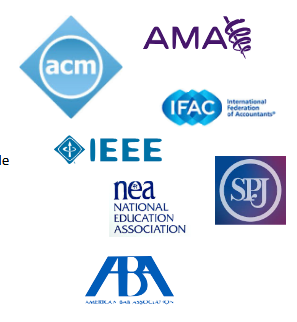#CS361#Computer-Science#Sociology
What are ethics?
Ethics are systematic approaches to making choices - particularyl, difficult choices with moral implications; systems of principles.
- How do we achieve what is good?
- How do we know what is right to do? The formal study of ethics is named metaethics
- Metaethics is a subfield of philosophy
- Various subfields of ethics study exist, including normative and applied
- We will primarily discuss normative ethics - what you should do in any given situation, and professional ethics - what is expected of a professional in a field Ethical systems need an underlying goal. For example:
- to do what is right (deontological)
- to do what brings the best results (ends justify the means; ontological, or consequentialism)
- based on religion (often a variation of the “Golden Rule”)
- are we just to all? (justice theory)
- do ethics even matter? (existentialism)
- MORE! Our society is primarily based on deontological principles, with some consideration of utilitarianism and justice
- it isn’t whether you win or lose, its how you play the game
- Rules matter (e.g. Miranda rights)
- We DON’T ignore rules based on the outcome
- You can’t claim “I had to follow orders” or “whatever it takes”
Professional Ethics
Most major professional organizations have a Code of Ethics or a Code of Professional Conduct for guidance. These are intended to enhance trust in the profession, help guide members, and serve to educate the public.

Why do we care about ethics?
- Ethics are important! The concepts of honor and trust are closely tied with ethical behavior, if those are of importance to you than ethics are important to you
- When you are unsure what is ethical you may
- delay in deciding
- regret your decisions
- make poor choices
- cause others to behave poorly
- We have many overlapping ethics systems
- Societal ethics - what society as a whole thinks is correct and incorrect
- Organizational ethics - what an organization allows and dis allows in pursuit of its goal
- Professional ethics - what others expect of you as a member of a profession
- Personal ethics - what you personally believe is the right thing to do
- You need to carefully consider your choices if they are at odds within the multiple overlapping ethics systems